#antilynching
Text
Left anticommunists find any association with communist organizations morally unacceptable becauseof the “crimes of communism.” Yet many of them are themselves associated with the Democratic party in this country, either as voters or as members, apparently unconcerned about the morally unacceptable political crimes committed by leaders of that organization. Under one or another Democratic administration, 120,000 Japanese Americans were torn from their homes and livelihoods and thrown into detention camps; atomic bombs were dropped on Hiroshima and Nagasaki with an enormous loss of innocent life; the FBI was given authority to infiltrate political groups; the Smith Act was used to imprison leaders of the Trotskyist Socialist Workers Party and later on leaders of the Communist party for their political beliefs; detention camps were established to round up political dissidents in the event of a “national emergency”; during the late 1940s and 1950s, eight thousand federal workers were purged from government because of their political associations and views, with thousands more in allwalks of life witchhunted out of their careers; the Neutrality Act was used to impose an embargo on the Spanish Republic that worked in favor of Franco’s fascist legions; homicidal counterinsurgency programs were initiated in various Third World countries; and the Vietnam War was pursued and escalated. And for the better part of a century, the Congressional leadership of the Democratic party protected racial segregation and stymied all antilynching and fair employment bills. Yet all these crimes, bringing ruination and death to many, have not moved the liberals, the social democrats, and the “democratic socialist” anticommunists to insist repeatedly that we issue blanket condemnations of either the Democratic party or the political system that produced it, certainly not with the intolerant fervor that has been directed against existing communism.
Blackshirts and Reds by Michael Parenti
165 notes
·
View notes
Text



Most critics have failed to consider the full implications of the monster's Otherness, overlooking the fact that the main variable upon which the monster's Otherness rests is his physiology, his dark and grotesque body that locates him firmly as an Other within the racial social hierarchy of the early nineteenth-century. (source)
The Whale Frankenstein films have multiple political connotations, including the queer resonances with which James Whale, an out gay man in homophobic Hollywood, sympathetically suffused them. My interest here is in their relation to U.S. racial politics of the 1930s, specifically the rise in lynchings and the 1931 conviction of nine young Black men known as the “Scottsboro boys.” There are, of course, no visible African-American characters in the Whale films, whose setting is an unspecified Europe and whose director and actors are English. But the films indirectly offer a surprisingly radical intervention into American iconographies of race, rape, and lynching. Within their cinematic fantasy space — or perhaps because of their cinematic fantasy space, given that more realist films of the 1930s were more cautious about racial politics — the Whale films offer an antilynching perspective.
In both Frankenstein and Bride of Frankenstein, for example, the monster is depicted in flight from a crowd of angry townspeople, whose pursuit of him is represented with the visual markers of a lynch mob, including barking dogs, fiery torches, and angry shouts. At one point in Bride of Frankenstein, the monster is strung up on a tree as a cluster of white people surrounds him, their anger sparked by his perceived violation of a white girl.
The monster is presented sympathetically at this moment, his iconography blended with that of Christian martyrdom. Here the Frankenstein monster meets both Christ on the cross and the victim of lynching. Whale’s monster also seems kin to that other 1930s film figure associated with blackness and violence: King Kong. Like Kong, Whale’s Frankenstein monster is as much sympathetic victim as he is source of horror, while the true location of monstrosity becomes the mob who demonizes him.
(continue reading)
30 notes
·
View notes
Text
"
Maintaining and expanding the pro-equality majority in the Senate is of critical importance to protect the advancements for LGBTQ+ people and other marginalized communities. Pro-LGBTQ+ equality lawmakers have played a fundamental role in the passage of the Emmett Till Antilynching Act and in the historic confirmation of Ketanji Brown Jackson to the U.S. Supreme Court. Senate leaders continue to support legislation, like the Equality Act, which will enshrine protections against anti-discrimination for LGBTQ+ protections.
We need federal action and allies in Congress to ensure LGBTQ+ protections. That means maintaining the Senate majority in 2024."
5 notes
·
View notes
Photo

On March 29, 2022, President Biden signed the Emmett Till Antilynching Act into law — finally designating lynching as a federal hate crime in the United States.
Antilynching legislation was first introduced over a century ago, and failed to pass over 200 times, in spite of the nearly 6,500 documented racial terror lynchings between 1865 and 1950.
The Emmett Till Antilynching Act was a long overdue correction to the Hate Crimes Act, and we remain grateful to all who worked to pass this important legislation.
6 notes
·
View notes
Text
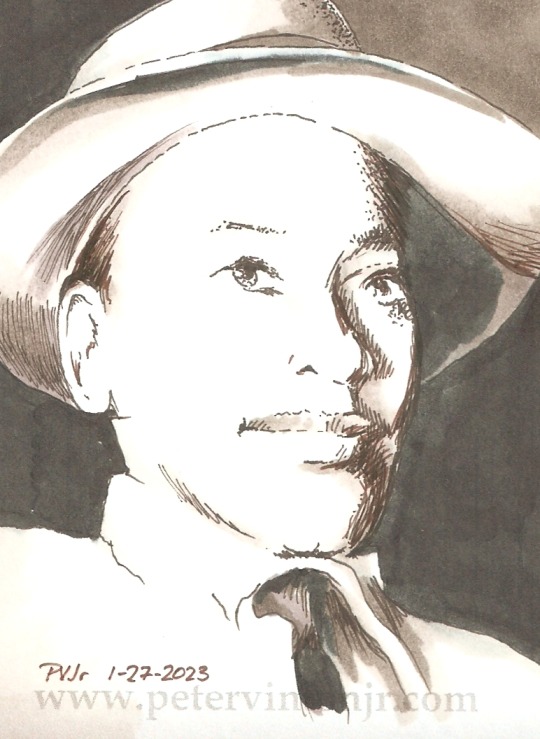
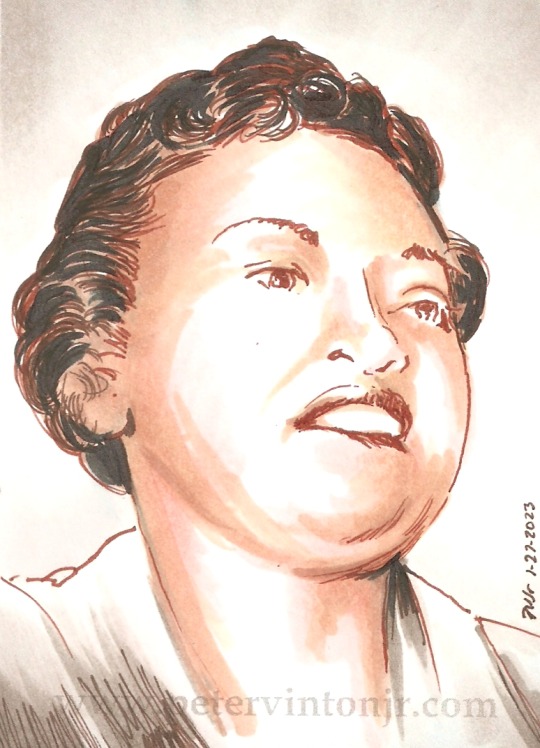
"That is, after all, how it works. We don't come here with hatred in our hearts. We have to be taught to feel that way. We have to want to be that way, to please the people who teach us to want to be like them. Strange, to think that people might learn to hate as a way of getting some approval, some acceptance, some love. I thought about all that."
Double biography today. And even a cursory glance at this weekend's headlines will make fairly obvious why I chose to talk about these two people.
Born in 1941 Chicago, Emmett Till was 14 years old when, on August 24, 1955, he was kidnapped and tortured to death by a white mob in Money, Mississippi for the never-proven "crime" of flirting with a white woman. His mutilated body was retrieved from the Tallahatchie River three days later. His mother, Mamie Till-Bradley, made the agonizing decision for her son's bloated, mutilated body to be displayed in an open casket funeral at Roberts Temple Church of God in Christ, in Chicago. Thousands of people lined up to view the body and more than 50,000 mourners attended the funeral service. The resultant media coverage threw a spotlight on extrajudicial lynchings in the U.S., and forced a greater public discourse on segregation, racial violence, and systemic inequality.
In September of that year Till's accused murderers were ultimately acquitted by an all-white, all-male jury after only 67 minutes' deliberation. Four months later the accused murderers openly admitted to the crime to journalist William Bradford Huie, in an article that would then appear in the Jan. 24, 1956 edition of Look magazine. This article's publication was in many respects a clarion call to justice for many grassroots and local activists, kickstarting the Modern Civil Rights Movement.
Mamie Till-Bradley continued to advocate for social and racial justice for the rest of her life, never passing up an opportunity to educate about the circumstances of her son's murder right on up until her death in 2003. While Till's story remains a part of the American public consciousness (even directly informing the underlying plot of Harper Lee's To Kill A Mockingbird), the details tend to become lost to time --glossed over, sanitized. Of late this has been notably mitigated, with 2022's airing of the miniseries Women of the Movement on ABC, featuring Adrienne Warren as Mamie Till-Bradley. In March of 2022, President Joe Biden signed into law the Emmett Till Antilynching Act, and this past October the feature film Till premiered in theaters, directed by Chinonye Chukwu and starring Danielle Deadwyler as Mamie Till-Bradley. One attendee at the notorious 1955 trial was future State Sen. David Jordan (D-Greenwood), who successfully sponsored the commissioning of a bronze statue of Emmett Till, unveiled in October of 2022 at Rail Spike Park.
(Read "What Emmett Till's Mother Taught Me About Grief and Justice" by Sybrina Fulton, mother of Trayvon Martin.)
Bottom line here: Emmett Till's story has pointedly NOT vanished into invisibility and obscurity, unlike a great many other lynchings and massacres. But the larger issue is more primal: Emmett Till should still be alive, today --he should be comfortably just into his eighties, possibly enjoying the company of grandchildren. And to pull that very same thread, Amadou Diallo should still be alive; Trayvon Martin should still be alive; Breonna Taylor should still be alive --they should all be into their late-twenties, possibly settling into a career, perhaps starting families of their own.
Tyre Nichols should still be alive.
Incidentally, these biographies all now have a permanent home, rather than subject themselves to arbitrary throttling-down at the murky whims of various social media. Safer and more sensible that way, especially since so many states (mine included, unfortunately) have redoubled their efforts to ensure that this subject matter stays out of school curricula. New to this series? Go here to start the lessons: http://www.petervintonjr.com/blm/start.html
Black History Month kicking off in a few more days, my friends. More biographies and accompanying art, still to come. I feel as though I keep repeating this, but: we've a lot still to learn. So go study.
6 notes
·
View notes
Text

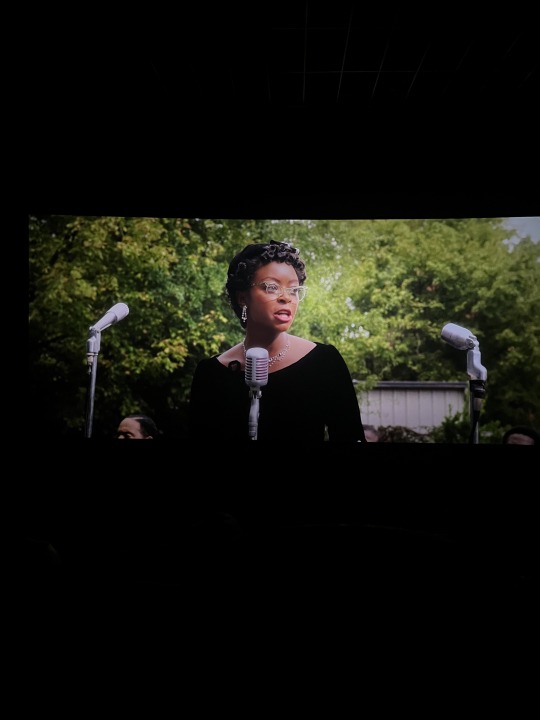
TILL (2022)
Absolutely struck by this film, I'm just home from seeing this by myself and honestly spent about 70% of the movie in floods of tears.
I'm ashamed to admit I did not know much of Emmett Till and his story, but knowing the premise for the film I felt very tense for the first 30 or so minutes knowing something bad was going to happen to the sweet boy, the music really played into that - the score was exceptional.
I saw a little bit of backlash or hesitation online before going to see this film that it would show yet more aggression and violence towards black people, and exploit black trauma on the big screen but the director Chinonye Chukwu was very insistent this would be avoided at all costs. The story was very much centered around his mother Mamie, her grief, her story, and how her influence impacted civil rights in America and so although I have no authority to speak on it, to me it still felt like a story worth making.
The visceral, bone-chilling screams and tears of both Mamie (Danielle Deadwyler) and her Aunt (?) in the film will stay with me for a long time, and really seek to show that there is nothing more powerful than a parent's love for their child and the lengths they would go for them. Mamie has some epic dialogues, including an epic Oscar nom carrot that contained the lines "The murder of my son has shown me that what happens to any of us, anywhere in the world, had better be the business of all of us."
The costume work was also beautifully done, the light, colour, and intricacy of the clothes Mamie wears/are shown in Chicago contrast heavily with the simplicity of the Mississippi scenes further emphasizing the point made in the film that life had become more sophisticated/refines [? both of these are the wrong word I'm sorry] for people of colour away from the still segregated South. There is still present discrimination in Chicago, we see Mamie as the only person of colour at work and then "advised" that she may be more comfortable shopping in the basement of Marshall Field's [where I actually went for a drag brunch this summer!] with other women that look like her, but when she firmly states that she's fine where she is there are no dangerous repercussions for her unlike those to come for her poor son. The outfit Mamie wears for the trial absolutely slays and makes me want to look for A-Line skirts. They also pay close attention to Mamie getting ready, frequent close-ups of earings coming on and off, jewelry and accessories like bags / shoes made constantly throughout the film and I think there's some smart comment to be made about linking the importance of presentation in black culture with both religion and the seriousness of the rights work being done, especially in an era where discrimination was still so present but I'm not informed / awake enough to make it.
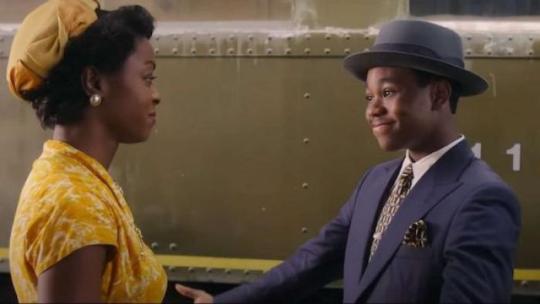
One thing the film also highlights at the credit role is the last impact of Emmett Till's death, his mother Mamie became a leading Civil Rights activist and taught in public schools for many years to come. I also found out that ONLY IN 2022 has lynching officially been made a federal crime, signed into law by Joe Biden earlier this year, almost 80 years after the incidents of this film. The Emmett Till Antilynching Act officially recognises lynching as a crime, although evidence could have been brought forwards previously for an assault or homicide case, there are certain nuances with lynching - I think it's something ot do with the conspiracy surrounding it and the creation of fear and intimidation that make it easier for a wider group of people to be found guilty not just a main assailant, so making this a federal crime prevents certain states ability to reduce aspects of the sentencing. I don't know enough to write any more on it, but from what I understand this is more of a symbolic federal law addition but still, one that's come way too late.
Overall a solid 8/10 for this one, beautiful piece of work, with amazing performances & costumes, but I think the pacing was a little bit slow at times and there was just one too many flashbacks for me.
4 notes
·
View notes
Text
instagram
Fact Check: Is There An Anti-Hate Crime Bill Specifically For Black Americans?
Black Americans remain the most frequent victims of racially motivated hate crimes in the U.S. A 2023 study published by the Center for the Study of Hate and Extremism at California State University San Bernardino found that Black people were targeted in over 20% of hate crimes in major U.S. cities last year, the highest proportion among all groups.
Although the overall rate of anti-Black hate crimes fell by 6% from previous years, this decrease was uneven, with many cities and states experiencing record or near-record levels of such crimes. Historically, African Americans have faced the highest rate of hate crimes, a trend that continued into 2022.
The Emmett Till Antilynching Act, signed into law in 2022 under the Biden administration, designates lynching as a federal hate crime, making it a distinct federal offense. It was enacted to address both the historical and ongoing violence of lynching, which has predominantly targeted Black Americans. The law imposes criminal penalties—including fines, imprisonment for up to 30 years, or both—on individuals who conspire to commit a hate crime resulting in death or serious bodily injury.
Hate crime legislation, such as Matthew Shepard and James Byrd, Jr. Hate Crimes Prevention Act of 2009, provides protections against crimes motivated by race, gender or sexual orientation among other factors, according to the U.S. Department of Justice’s website. The federal law, enacted to address and prevent hate crimes, includes race as a protected category, thereby covering crimes committed against Black people. -(source: newsone)
DNA America
“It’s what we know, not what you want us to believe.”
#dna #dnaamerica #news #politics
0 notes
Text

In August 1955, 14-year-old Emmett Till, visiting relatives in Money, Mississippi, was murdered for allegedly flirting with a white woman. The woman's husband and brother-in-law brutally beat Till, gouged out his eye, shot him, and threw his body into the Tallahatchie River, tied to a cotton gin fan with barbed wire.
Till's death shocked the nation, especially after his mother insisted on an open-casket funeral, revealing his mutilated body to the world. Despite clear evidence, the all-white jury quickly acquitted the killers, sparking national outrage and fueling the civil rights movement.
Years later, the woman involved admitted she lied about Till's actions. In 2022, President Biden signed the Emmett Till Antilynching Act, making lynching a federal hate crime, a lasting legacy of Till’s tragic death.
0 notes
Text
Till
The writeup you see below was done in January 2023 shortly after I watched the film which left such an impression on me that I wanted to make sure I made justice to it within my limited means.
I truly believed that Ms Deadwyler was a certainty for an Oscar nod, how wrong I was.
Mark Kermode discussed this iniquity in his film review podcast with Simon Mayo, worth listening to them about this (their podcast can de downloaded from anywhere): https://podcasts.apple.com/us/podcast/danielle-deadwyler-women-talking-epic-tails-blue-jean/id1616559297?i=1000598917215
Before talking about the film absorb this bit of information, perhaps read it and then go for a coffee, a walk even, think about it and come back here if you wish: the Emmett Till Antilynching Act is a landmark United States federal law which makes lynching an US federal hate crime.[1], this law was enacted in .... 2022.
Summary: film based on real events, probably quite closely, commemorating the life and work of Mamie Till (later Till-Mobley) and the unspeakable tragedy that forced her into the limelight.
Plot with spoilers:
The film is about the enormity of a civilised country allowing the inhumanity we witness to happen, unashamed for the best part of the 20th century of human beings being violently murdered without any possibility of redress, a country and establishment entirely unconcerned of the murder of a young boy in the most savage manner as a payback for a bit of well intended silliness.
The film is the stuff of nightmares, I would have no hesitation to describe the first half of the film as part of the horror genre.
This is 1955 Chicago, Emmet, known as Bo, is a jovial happy African American boy who lives with her loving mother, Mamie, surrounded by loving relatives and friends, his dad died in the last months of WWII, a hero, his family comes from Mississippi and he goes visiting relatives there at the suggestion of his grandmother, played by none other than Whopi Goldberg.
Mamie has misgivings about the visit since Bo has grown in a more tolerant environment (the low level racism is still there mind you, there is a short scene to remind us of that), he doesn't know how to engage with people prepared to murder him at the drop of a hat (who could have?).
Bo goes away, once there he is prancing around with his cousins, they go to a grocery shop and what he intended as a compliment (he says to the shop attendant, a White woman, that she looks like a Hollywood star) is taken as an insult which is compounded by him whistling at the woman, when she reacts angrily the black youngsters disperse but offence has been taken, the boys keep things to themselves but little did they know that the family of the Woman would react with unimaginable rage.
A few days later, when Bo is getting ready to go back to Chicago, a group of men come to the home of his relatives and get him out of bed and into a truck, mercifully we aren't shown much of what happens to him but we are in no doubt about what is coming, in the meantime Mamie misses Bo terribly and wants him back, she is in this state of mind when news of Bo's disappearance reach her, she is desperate to rush to Mississippi but she is convinced to use the help of activists since this kind of kidnappings are very common and they know how to apply pressure to the system.
Mamie and the people helping are embroiled in all this when the news finally arrive that Bo's body has been found, the authorities in Mississippi want to bury Bo there, but Mamie is having none of it and by the simple strength of her moral position forces the activists to move all their influence to bring Bo back home, which they manage to do.
On arrival of the body to Chicago Marnie receives it in very moving scenes of unimaginable sorrow, later on Mamie is shown the body which is horribly disfigured, I thought this wouldn't be shown, but the camera moves deftly and all of the sudden we can see the left side of Bo's horribly disfigured remains, this by the way is not imagined, in real life Mamie asked a photographer to take pictures of her disfigured son and of her and her then boyfriend standing in front of the body, I don't understand why this picture isn't iconic, it has a visceral power similar to that of the Vietnamese girl escaping a Napalm bombardment.
From this point the film endeavours to document the transformation of Mamie from grieving mother into Civil Rights Activist, starting with attending as a witness the trial of the murderers of her son (they would later confirm the murder in a paid interview years later, protected by the inane US double jeopardy laws ). Predictably these subhumans walked free.
How somebody can manage to find the courage to lead and to become an icon after such sorrow and pain is impossible to fathom, I am shocked that good people, any people, had to endure this, and even more shocked about all the people that to this day haven't done something to redress this shameful balance.
This is a film whose relevance as a document, homage and reminder is far more important than the technical aspects of it, the film is impeccably ambiented in the 1950s, several photographs around the death of Bo have been recreated with great success in the film, the acting is fantastic, Mamie is played with great dignity and empathy by Danielle Deadwyler who is not a newcomer, but who should see her star raising after this great role. Oscar node perhaps? I hope people don't forget about her, she has been nominated for a BAFTA, and deservedly so, but given the vagaries of these things the film may not be eligible for the Oscars until 2024.
Rating: 4.5/5
78 of 168
Date: 11 January 2023
Venue: Barbican Cinemas
The list of films in the LFF 2022
0 notes
Text

Victoria Earle Smith (May 27, 1861 - March 10, 1907) was an accomplished journalist, author, lecturer, clubwoman, social worker, and missionary. She was born in Fort Valley, Georgia to Caroline Smith, enslaved and a man who was believed to be the family’s master. The family moved to New York City, where she excelled in public school until financial and family conditions made it necessary for her to quit and go into domestic service. She continued her education by using the library of her employer, special studies, and other opportunities to improve herself. She married William Matthews (1879) and they had one son.
She began her journalistic career, working as a reporter for three New York newspapers, the Times, Herald, and Sunday Mercury, and African American newspapers such as the Boston Advocate and the New York Globe. Her writing and community service were designed to find ways to help African Americans exchange their inner anguish, a possible result of slavery, for outward accomplishments in literary and civic areas. In the novel, Aunt Lindy (1893) she describes a protagonist who was persuaded not to murder her cruel former master and instead to help him heal from his pain. In “The Value of Race Literature” (1895), she supported the importance of collecting the writings by and about African American women and men. She was noted for her effective lectures such as, “The Awakening of the Afro-American Woman”.
She founded the Woman’s Loyal Union. She was one of the leaders in supporting the antilynching crusade of Ida B. Wells. She helped found the National Federation of Afro-American Women and was instrumental when this organization and the National Colored Women’s League merged with the National Association of Colored Women (1896). She served as the first national organizer of the combined group (1897-99).
She established the White Rose Industrial Association in New York City. The Association provided a home for girls and young single women while instructing them in domestic skills. #africanhistory365 #africanexcellence
0 notes
Text
youtube

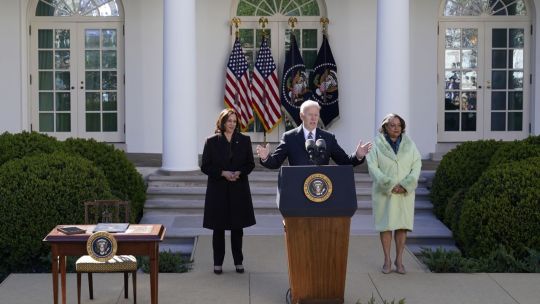
In 2022, President Joe Biden officially signed the Emmett Till Antilynching Act and made lynching a hate crime. This occurred 124 years after Ida B. Wells-Barnett had lobbied Congress in an effort to have them pass an antilynching law. During the 1800s and 1900s, lynching was being used as a way for everyday people to take "justice" into their own hands. White men in this period deemed themselves judge, jury, and executioner which resulted in the persecution and unjust murder of several Black Americans in the Jim Crow South.
In her pamphlet, titled "Southern Horrors: Lynch Law in All Its Phases", Wells-Barnett uses her platform to dissect the justifications made in support of these lynchings such as many victims being deemed rapists in order to justify their murder. White owned newspapers reporting on the instances consistently deemed the lynching victims as criminals while in the research conducted Wells-Barnett deems it to be mere lies. She comes to the conclusion that Black men were being falsely accused and lynchings were being done to continue the oppression of the formerly enslaved.
0 notes
Text
Biden 2024 campaign raises more than $72 million in second quarter
U.S. President Joe Biden and Vice President Kamala Harris smile after signing the Emmett Till Antilynching Act, making lynching a hate crime under federal law, during a ceremony in the Rose Garden of the White House in Washington, D.C., March 29, 2022.
Nicholas Kamm | AFP | Getty Images
President Joe Biden raised more than $72 million for his 2024 reelection effort in the second quarter of this…
View On WordPress
0 notes
Video
youtube
TrueMendous - Emmett Till Feat. Masta Ace
High Focus Records presents TrueMendous' new single ‘Emmett Till’ featuring Masta Ace and produced by Dirty Dike, lifted from her recent album 'Misdiagnosis Of Chyvonne Johnson' .
Emmett Louis Till (July 25, 1941 – August 28, 1955) was an African American boy who was abducted, tortured, and lynched in Mississippi in 1955 at the age of 14, after being accused of offending a white woman, Carolyn Bryant, in her family's grocery store. The brutality of his murder and the acquittal of his killers drew attention to the long history of violent persecution of African Americans in the United States. Till posthumously became an icon of the civil rights movement.
Till was born and raised in Chicago, Illinois. During summer vacation in August 1955, he was visiting relatives near Money, Mississippi, in the Mississippi Delta region. He spoke to 21-year-old Carolyn Bryant, the white, married proprietor of a small grocery store there. Although what happened at the store is a matter of dispute, Till was accused of flirting with, touching, or whistling at Bryant. Till's interaction with Bryant, perhaps unwittingly, violated the unwritten code of behavior for a black male interacting with a white female in the Jim Crow-era South. Several nights after the incident in the store, Bryant's husband Roy and his half-brother J. W. Milam, who were armed, went to Till's great-uncle's house and abducted Emmett. They took him away then beat and mutilated him before shooting him in the head and sinking his body in the Tallahatchie River. Three days later, the boy's mutilated and bloated body was discovered and retrieved from the river.
Till's body was returned to Chicago, where his mother insisted on a public funeral service with an open casket, which was held at Roberts Temple Church of God in Christ. It was later said that "The open-coffin funeral held by Mamie Till Bradley[a] exposed the world to more than her son Emmett Till's bloated, mutilated body. Her decision focused attention on not only American racism and the barbarism of lynching but also the limitations and vulnerabilities of American democracy". Tens of thousands attended his funeral or viewed his open casket, and images of his mutilated body were published in black-oriented magazines and newspapers, rallying popular black support and white sympathy across the U.S. Intense scrutiny was brought to bear on the lack of black civil rights in Mississippi, with newspapers around the U.S. critical of the state. Although local newspapers and law enforcement officials initially decried the violence against Till and called for justice, they responded to national criticism by defending Mississippians, temporarily giving support to the killers.
In September 1955, an all-white jury found Bryant and Milam not guilty of Till's murder. Protected against double jeopardy, the two men publicly admitted in a 1956 interview with Look magazine that they had tortured and murdered the boy, selling the story of how they did it for $4,000 (equivalent to $43,000 in 2022).Till's murder was seen as a catalyst for the next phase of the civil rights movement. In December 1955, the Montgomery bus boycott began in Alabama and lasted more than a year, resulting eventually in a U.S. Supreme Court ruling that segregated buses were unconstitutional. According to historians, events surrounding Till's life and death continue to resonate.
An Emmett Till Memorial Commission was established in the early 21st century. The Sumner County Courthouse was restored and includes the Emmett Till Interpretive Center. Fifty-one sites in the Mississippi Delta are memorialized as associated with Till. The Emmett Till Antilynching Act, an American law which makes lynching a federal hate crime, was signed into law on March 29, 2022, by President Joe Biden.
0 notes
Text
My Chained Response & History of Lynching
Perry's art refers to "the person that we didn't know who was lynched...that we didn't find". Lynchings were allowed and encouraged by local police. The Equal Justice Initiative found that there were almost 5,000 lynchings in the U.S. between 1877 and 1950. However, there were likely many more that went unreported. Lynching was not a federal hate crime until 2020. People refer to many acts of violence against Black people as modern-day lynchings.
"We know that the criminal justice system fails to deliver justice. Additional legislation against lynching alone won't protect Black lives. And the Antilynching Act felt more symbolic than anything else, even now, following the death of Emmett Till's accuser. While it's affirming to see this type of violence named for what it is and formally addressed, as it should have been for centuries, it shouldn't have taken this long to have systemic violence recognized for what it is" (Stewart, 2023).
0 notes
Text
It took way too long for the Emmett Till Antilynching Act to be passed, but at least it was.
0 notes
Text
Till Review: The Story Of Emmett Till Through His Mother’s Eyes Gets A Worthy Memorial
Till Review: The Story Of Emmett Till Through His Mother’s Eyes Gets A Worthy Memorial
In August 1955, 14-year-old Emmett Till was abducted during a trip to Mississippi, and he was subsequently tortured, lynched, and shot, his body was sunk in the Tallahatchie River. It’s a devastating part the American Civil Rights Movement and the country’s history, and a story that remains relevant today – with the Emmett Till Antilynching Act going into American law just months ago on March 29,…

View On WordPress
0 notes